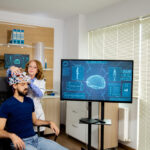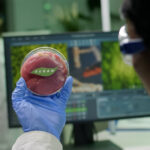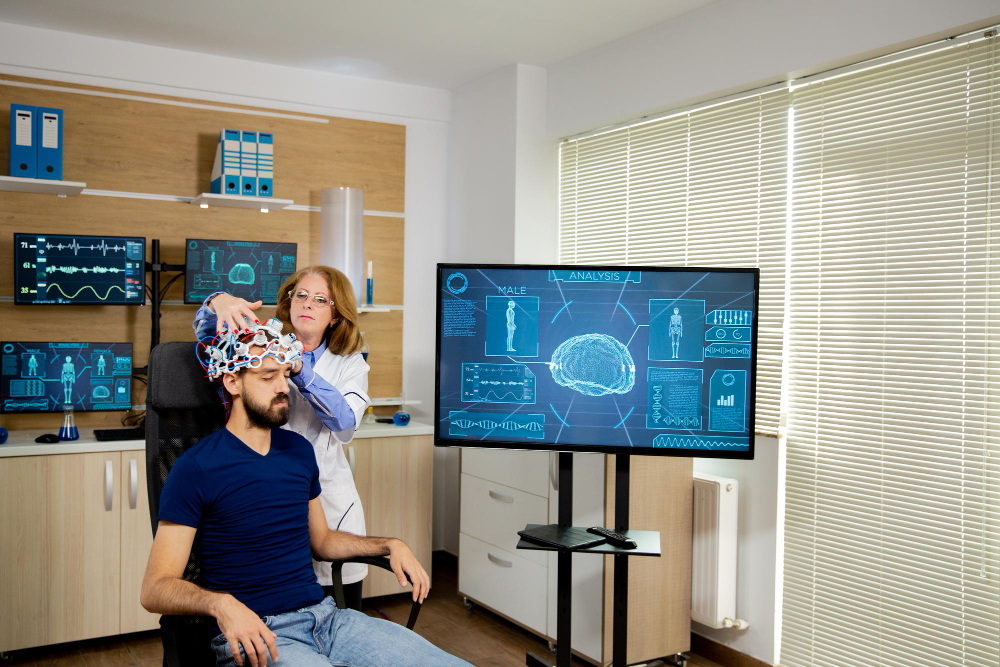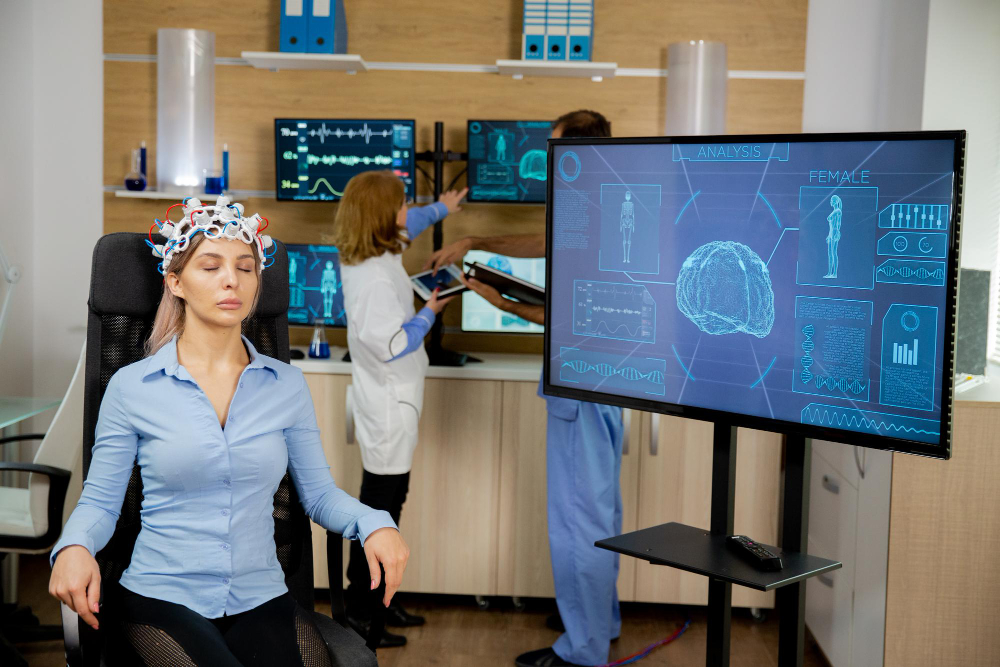Top 7 Health Innovations That Will Revolutionize Human Life by 2030
The next decade promises a healthcare revolution like never before. As science and technology merge, we’re witnessing extraordinary innovations that will transform how we live, heal, and age. From artificial intelligence and gene editing to smart wearables and regenerative medicine, these breakthroughs are redefining what’s possible in human health.
Here are the Top 7 Health Innovations That Will Revolutionize Human Life by 2030 — the game-changers shaping the future of medicine.
1. Artificial Intelligence in Healthcare
Artificial Intelligence (AI) is rapidly becoming the brain behind modern medicine. AI-powered algorithms can diagnose diseases faster and more accurately than human doctors, analyze massive datasets, and even predict health risks before symptoms appear.
AI is already assisting in:
- Medical imaging – detecting tumors, fractures, and heart conditions within seconds.
- Drug discovery – identifying new compounds at record speed.
- Personalized care – recommending treatments tailored to an individual’s DNA and lifestyle.
By 2030, AI-driven healthcare systems could manage entire hospitals, automate diagnostics, and provide real-time patient monitoring—making medicine faster, cheaper, and more precise.
2. Gene Editing and CRISPR Therapies
The era of curing genetic diseases is here, thanks to CRISPR-Cas9 and its next-generation versions. Scientists are already using this revolutionary gene-editing tool to correct DNA errors that cause conditions like sickle cell disease, muscular dystrophy, and cystic fibrosis.
By 2030, CRISPR could:
- Eliminate inherited disorders before birth.
- Enhance immune resistance against viruses like HIV.
- Regrow damaged tissues using genetic reprogramming.
This innovation represents the ultimate personalization of healthcare—treating disease at its genetic root.
3. Regenerative Medicine and 3D Bioprinting
Imagine a world where damaged organs can be repaired or replaced with lab-grown versions. That’s the promise of regenerative medicine and 3D bioprinting.
Scientists are already bioprinting tissues, bones, and even miniature hearts using a patient’s own stem cells. By 2030, fully functional 3D-printed organs—like kidneys and livers—could become available for transplantation.
These advancements will:
- End organ donor shortages.
- Reduce transplant rejection rates.
- Speed up tissue regeneration for injury recovery.
Regenerative medicine could make “aging gracefully” a scientific reality.
4. Smart Wearables and Real-Time Health Tracking
From smartwatches to implantable sensors, wearable technology is turning every person into their own health monitor. These devices continuously track heart rate, glucose levels, sleep patterns, and even stress hormones.
By 2030, the next generation of wearables will feature:
- Continuous glucose monitoring for diabetics.
- Early disease detection through biosensor analysis.
- AI-integrated alerts that recommend lifestyle or medical actions instantly.
Products like Apple Watch Ultra, Whoop, and Oura Ring already demonstrate how personalized, data-driven healthcare can prevent diseases before they start.
5. Nanomedicine and Targeted Drug Delivery
Nanotechnology is shrinking medicine down to the molecular level. Nanomedicine uses tiny particles—often smaller than a red blood cell—to deliver drugs directly to diseased cells without harming healthy tissue.
This innovation has already revolutionized cancer treatment, reducing side effects and improving survival rates. By 2030, nanobots could circulate inside our bodies to:
- Repair damaged cells.
- Detect infections early.
- Deliver precise doses of medication automatically.
Nanomedicine is the key to ultra-personalized, side-effect-free therapies.
6. Virtual and Augmented Reality in Healthcare
Virtual Reality (VR) and Augmented Reality (AR) are transforming the way doctors train, patients heal, and therapies are delivered.
Applications include:
- VR surgical training for medical students using simulated patients.
- AR-assisted surgeries, guiding surgeons in real time with 3D overlays.
- VR therapy for pain management and mental health treatment.
By 2030, patients could attend virtual medical consultations in immersive environments, while doctors perform remote surgeries from across the world.
VR and AR are making healthcare more interactive, accessible, and effective.
7. Longevity Science and Anti-Aging Breakthroughs
The pursuit of longer, healthier life has entered a scientific renaissance. Researchers in longevity science are uncovering ways to slow—and possibly reverse—aging.
Innovations include:
- Senolytic drugs that clear aging cells.
- Gene therapy targeting longevity-related genes.
- AI-driven biological clocks to measure cellular aging in real time.
By 2030, anti-aging medicine may extend human life expectancy by 10–20 years, focusing on vitality, not just lifespan. This could redefine what it means to grow old.
The Impact of These Innovations on Human Life
Together, these seven breakthroughs will redefine healthcare in ways once thought impossible:
- Disease prevention will replace treatment.
- AI and robotics will enhance doctors, not replace them.
- Healthcare costs will drop as automation and precision increase.
- Lifelong wellness will become achievable for billions.
Humanity stands on the edge of a new medical era—one where technology and biology merge seamlessly to create a healthier, longer, and smarter life.
Conclusion
The Top 7 Health Innovations That Will Revolutionize Human Life by 2030 represent a future where diseases are predicted before they appear, organs can be printed, and aging itself may become optional.
As we move toward 2030, these advancements will not only improve health outcomes but also redefine what it means to be human. The fusion of technology, biology, and artificial intelligence promises a future where living better is just as important as living longer.











